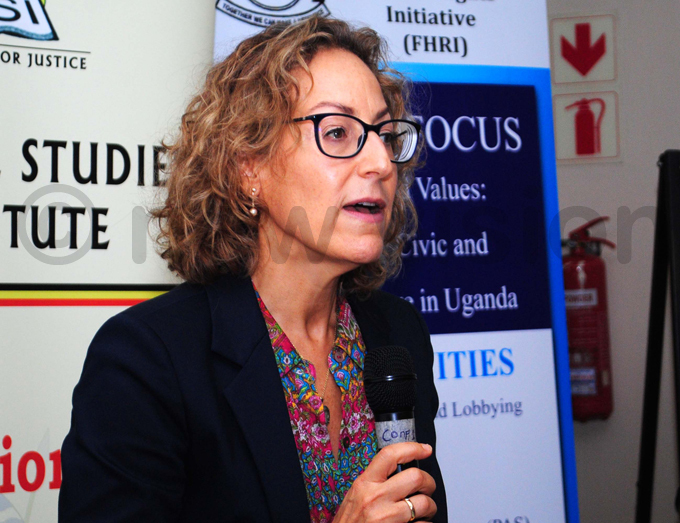Poll petition hearings 'violate human rights'
Nov 23, 2016
They argue that the time allocated for the filing of the petition, gathering of evidence and determination of the petition is against the right to a fair hearing

Human rights activists have branded this year's Presidential election petition and the ongoing hearing of the Parliamentary petitions an abuse to human rights.
The petition which was filed in the Supreme Court in February by former presidential candidate Amama Mbabazi against the Electoral Commission and President Yoweri Museveni. In the judges' final decision, Mbabazi lost the petition.
Dr. Livingstone Ssewanyana the executive director Foundation for Human Rights Initiative (FHRI) said that the 10 days and one month allocated for the filing of a presidential petition, gathering of evidence and determination of the petition, respectively, is against the right to a fair hearing.
"The right to a fair hearing is a critical right that is being abused by the little time allocated to case adjudication, gathering of evidence and difficulties in transporting witnesses" he said.
He was speaking at the opening of three day training of judicial officers in handling election petitions, improving their human rights knowledge and strengthening the functioning of the Judicial Studies Institute.
 Deputy USAID mission director, Jo Lesser-Olthelen addresses delegates at the opening the training at Protea Hotel. Photo by Mary Kansiime
Deputy USAID mission director, Jo Lesser-Olthelen addresses delegates at the opening the training at Protea Hotel. Photo by Mary KansiimeThe training is organized by FHRI and Freedom House, both human rights advocacy organizations, with funding from USAID, to train 15 judicial officers who will later become trainers in human rights and rule of law. The training is at Protea Hotel, Kampala.
Ssewanyana said that due to the limited time, evidence has been falsified by the respondents in the petitions, most especially those from the ruling party, making it hard for judicial officers to come up with sound judgments.
Justice Godfrey Namundi of the land division stated that lawyers too have jumped onto the bandwagon and have started manufacturing evidence for their clients.
"The affidavits are far different from the real evidence of the litigants. Normally when a litigant is tasked to confirm it, they cannot because that is not the truth they know. Therefore, it impacts on the right to a fair hearing," he said.
Jo Lesser-Oithelen, the deputy mission director USAID said that though there is a tremendous improvement in the judiciary, there is need to enhance the knowledge and skills of judicial officers in human rights.
 Donald Rukare the Freedom House executive director urged government to pass the Judiciary Administration Bill. Photo by Mary Kansiime
Donald Rukare the Freedom House executive director urged government to pass the Judiciary Administration Bill. Photo by Mary Kansiime
"When judges make a decision, those decisions set a precedent for future judgments. That is why we need to facilitate the judiciary and build the capacity of judicial officers in dispensing of justice," she said.
She stated that the rule of law can only be achieved by a country if its judicial independence is strong.
Donald Rukari, the executive director Freedom House said that government should make the Judiciary Administration Bill, which is currently before Parliament, a priority and pass it into law such that the institution gains the powers to manage its own internal issues such as employing and punishing its staff.
A 2016 baseline survey report on the judiciary points out that the institution grapples with the problem of inadequate human resource, few court houses, case backlog and corruption.
